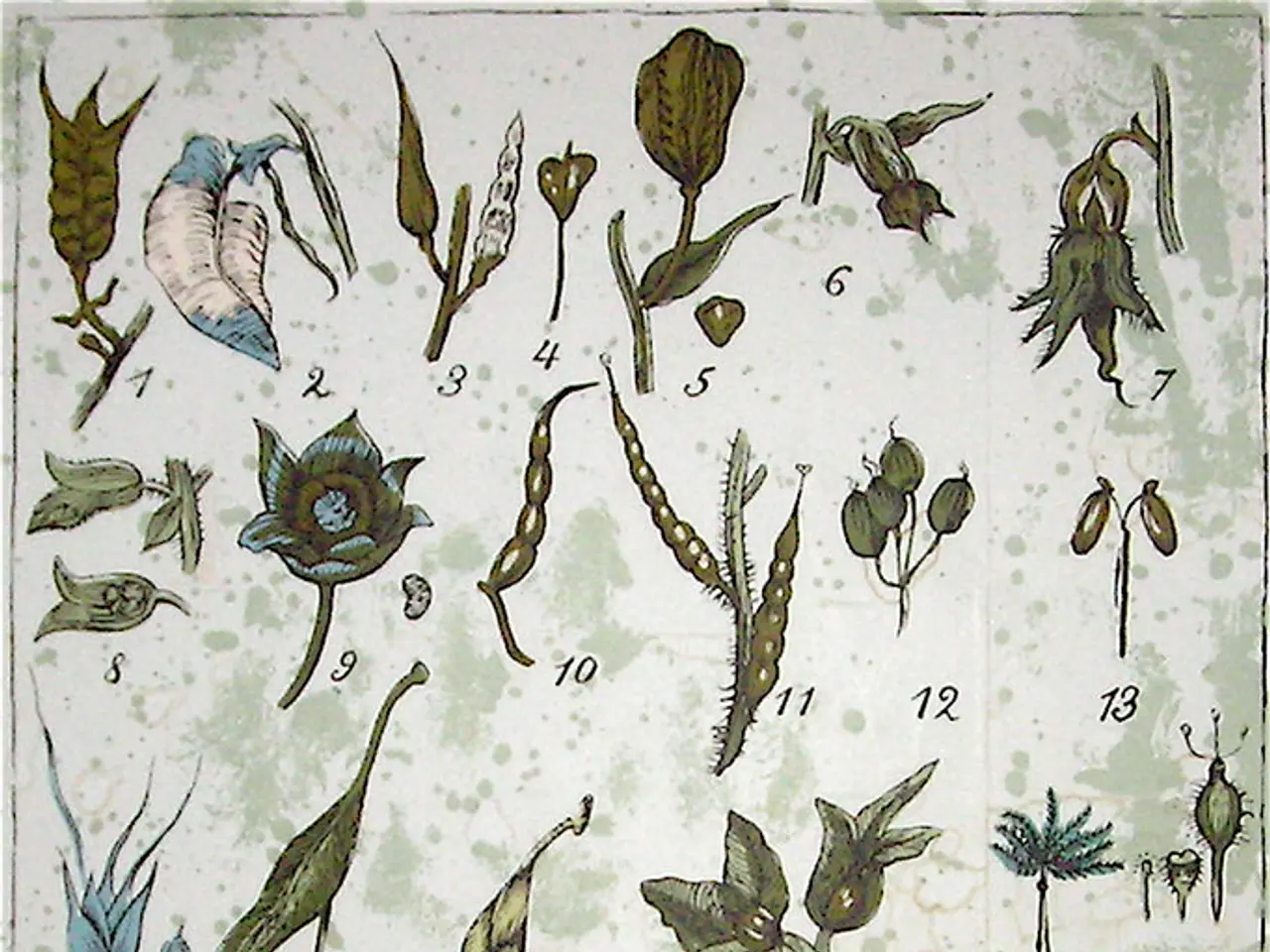Merging Plant Genetics with Microbial Genetics: InEdita Bio's Focus on Gene Editing 2.0
In the ever-evolving world of agriculture, a groundbreaking bio-technology company, InEdita Bio, is making waves with its innovative use of CRISPR systems to enhance crop resilience.
The company has developed a remarkable system for delivering CRISPR into cells without the need for tissue culture, a significant leap forward in the field. This technology, which can be applied to various crops, offers a promising solution to tackle other diseases affecting different crops.
Agrobacterium-mediated transformation is another approach, but it may not be applicable to all crops. InEdita Bio's innovative method, however, presents a versatile solution that could revolutionise agricultural practices.
Multiplex genome editing using CRISPR-Cas9 technology is at the heart of InEdita Bio's work. This technique enables the simultaneous modification of multiple genes in plants and microbes, a game-changer in increasing crop resilience to drought and pests. By creating complex trait improvements faster and more precisely than traditional breeding, this technology holds immense potential.
Combining plant genetics with microbial genetics through CRISPR technology allows for the targeting of both plant traits (such as drought tolerance and pest resistance genes) and beneficial microbial interactions (like symbiotic or protective microbes). This comprehensive approach strengthens plant health and stress tolerance significantly.
Specifically, multiplex CRISPR editing can knock out or modify several genes involved in drought stress response and immune defense pathways, enhancing multiple resilience traits at once. This has been demonstrated in crops like chickpea, where CRISPR targeting chlorophyll biosynthesis genes produced phenotypic variation relevant to stress regulation.
Moreover, plants can be engineered to resist pathogens by disabling susceptibility genes, like DMR6 in banana, thereby enhancing pest resistance without detrimental off-target effects.
Inedita Bio is also working on editing endogenous viral sequences in plants, such as the banana streak virus in plantains, to reduce disease symptoms significantly under stress conditions. This exemplifies how targeted microbial or pathogen genetic elements integrated within plant genomes can be managed via CRISPR.
The company is also focusing on facilitating the integration of beneficial microbial traits by combining plant gene editing with microbial genetics. This approach, advocated by experts like Dr. Paulo Arruda, aims to improve food production sustainably, leveraging CRISPR’s precision to modify both plant and microbial genomes for enhanced resilience and reduced pesticide usage.
InEdita Bio's work is not limited to plants; the company is also exploring ways to change a plant's genome precisely, transforming a susceptibility state into a resistance state. Most characteristics involved in yield are polygenic, but disease resistance can be conferred by a single gene.
The company is also studying the microbial populations associated with plants to increase crop resilience. Regulatory pathways for gene-edited crops in Brazil have already approved some varieties for commercialization, a testament to the potential of this technology.
InEdita Bio's mission is to develop crops that better associate with nitrogen-fixing microbes to reduce the need for nitrogen fertilizers. The company is working on projects to develop soybeans resistant to Asian Soybean Rust, funded by FINEP.
Particle bombardment is another technique employed by InEdita Bio. This method, applied to meristematic tissues of growing plants, can induce inheritable edits. Particle bombardment is used to introduce DNA expressing a nuclease and guide RNA into plant cells, allowing for genetic changes.
InEdita Bio's business model involves licensing technology to seed companies and co-development projects with corn seed companies. The company is also working on developing plants that produce signaling compounds that attract beneficial microorganisms, mimicking the natural behaviour of soybeans, which naturally form root nodules and associate with nitrogen-fixing bacteria.
InEdita Bio has developed a system for delivering RNAi against plant diseases by engineering non-translated regions of plant genes. The company is using multiplex genome editing to target multiple genes or multiple sites within the same gene or multiple alleles of a gene.
Considering the complex genetic and environmental combinations in crops grown in different regions of Brazil, InEdita Bio is focusing its efforts on these crops. The long-term potential of gene editing in plant breeding is transformative, with the possibility of correcting genetic errors and bringing important traits together more efficiently.
In conclusion, InEdita Bio's innovative use of CRISPR technology offers a promising solution to increase crop resilience, paving the way for sustainable agricultural practices and reduced reliance on chemicals.
- InEdita Bio's work extends beyond enhancing crop resilience; they are also focusing on health-and-wellness and fitness-and-exercise by engineering plants to produce signaling compounds that attract beneficial microorganisms, providing a natural alternative for enhancing nutritional value.
- This comprehensive approach of InEdita Bio, which includes nutrition, science, and multiplex genome editing, could potentially revolutionize health-and-wellness, agriculture, and fitness-and-exercise practices, making them eco-friendly and sustainable.




